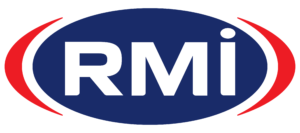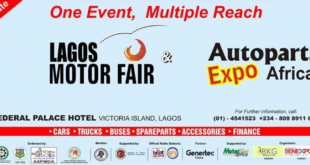 Jeanne Esterhuizen is the President, Retail Motor Industry Organisation (RMI), a perpetual corporate entity representing the interests of approximately 8,500 retail and wholesale motor industry establishments in South Africa.
Jeanne Esterhuizen is the President, Retail Motor Industry Organisation (RMI), a perpetual corporate entity representing the interests of approximately 8,500 retail and wholesale motor industry establishments in South Africa.
Yes, it is indeed a milestone to be celebrated. Despite unprecedented economic challenges and worldwide uncertainties, the Retail Motor Industry Organisation (RMI) has not only managed to weather the storm but has soared to new heights of excellence. RMI has shown consistent growth and innovation over the last decade, finishing this financial year in its strongest financial position yet. The RMI and its eight associations are an inspiring example of how growth and success can be achieved by embracing change and staying deeply connected to the needs and interests of members and the South African motoring public.
Its key focus on regulatory compliance and high ethical and professional standards have brought it closer to the consumer over the years, living up to its promise of providing motorists with peace of mind and compelling value to utilise the services of any of its eight accredited associations.
Part of the organisation’s success has also been its ability to embrace digital transformation and be sufficiently flexible to adapt to changing conditions. The future looks equally bright for the RMI as it remains agile, adaptable, and ready to thrive in an ever-changing business landscape.
RMI is an umbrella body of many associations in the automotive retail sector including SAMBRA and TEPA. How many affiliate associations really make up the RMI and what oversight does RMI have over these affiliate bodies?
The Retail Motor Industry Organisation (RMI) is a perpetual corporate entity established according to its Constitution, operating as a not-for-profit organisation. Registered as an Employers’ Organisation under the Labor Relations Act, the RMI represents the interests of approximately 8500 retail and wholesale motor industry establishments.
The RMI oversees its diverse sectors through eight constituent associations, each wholly owned by the RMI and operating under its Constitution.
The current constituent trade associations of the RMI include the Automotive Remanufacturers’ Association (ARA), Motor Industry Workshop Association (MIWA), National Automobile Dealers’ Association (NADA), South African Motor Body Repairers’ Association (SAMBRA), South African Vehicle & Body Builders’ Association (SAVABA), South African Petroleum Retailers’ Association (SAPRA), Tyre, Equipment, Parts Association (TEPA), and Vehicle Testing Association (VTA).
While the constituent associations address industry-specific matters autonomously, the RMI Board of Directors holds the ultimate fiduciary responsibility for the overall functioning of the RMI and its constituents.
As the President, what has been your experience so far leading such a body as big as RMI? How long have you been at the position, what are the challenges encountered so far and how have you been able to surmount them?
Leading the Retail Motor Industry Organisation (RMI) has been a profoundly rewarding experience, although, at times, presenting a steep learning curve. My tenure in this position spans more than eight years, during which I have had the privilege of navigating the intricate landscape of the expansive and diverse automotive retail sector.
The challenges in steering such a significant body as the RMI are multifaceted. Persistent issues in the automotive retail sector include skills shortages, compliance, technological advancements necessitating continuous adaptation, and the ever-evolving regulatory landscape. Navigating regulatory and business compliance, consumer education, and securing government recognition for the sector’s substantial contribution to our economy’s Gross Domestic Product (GDP) has posed formidable challenges. Nevertheless, diligent efforts are gradually yielding progress towards achieving these objectives. These challenges demand strategic foresight and proactive measures to ensure the sustained growth and resilience of the industry.
Throughout my tenure, overcoming these challenges has been a collaborative effort involving effective communication, stakeholder engagement, and strategic planning. Implementing initiatives to address skills shortages, fostering innovation, and advocating for government and member support have been integral to surmounting obstacles.
The commitment of the RMI under my leadership has been directed towards fostering resilience and adaptability, ensuring the continued success of the automotive retail sector.
Please, tell us about the new structure in place now at RMI with two CEOs. What is unique about this new arrangement and what does the organisation seek to achieve with it.?
We are starting an exciting new era with the introduction of a new Co-CEO structure. We believe this structure holds the key to ensuring the future success and stability of the Retail Motor Industry Organisation. Effective 1 January 2024, Ipeleng Mabusela, has taken up the role of CEO: Strategy and Corporate Support and Jan Schoeman the role of CEO: Operations & Regulatory Compliance. Ipeleng has over 10 years of experience in strategy, operations, and new business development and is a strategic thinker with excellent communication, leadership, operational, investment and negotiation skills. Jan has a remarkable 25-year journey of dedicated service and unparalleled expertise within the RMI and previously held the position of Chief Operations Officer. The two newly established executive positions hold equal stature and accountability. We are confident that this pioneering approach will yield long-term benefits for the RMI and that the structure will strengthen the RMI, guaranteeing sustainability and stability.
Women have always played important roles in the automotive industry here in SA. How has the RMI under your leadership been enhancing this, and what special arrangements are in place to encourage women to take up careers in the automotive retail sector?
Historically, women have played vital roles in South Africa’s automotive industry, predominantly in administrative support capacities rather than leadership positions. However, the paradigm shifts in our nation in 1994 paved the way for a transformation in the recognition and support of women in technical and leadership roles. Notably, my journey has seen me become the first female President of the Motor Industry Bargaining Council in 58 years and only the second female President of the RMI in its 115-year history.
Under my leadership, the RMI (Retail Motor Industry Organisation) has been committed to fostering inclusivity and gender diversity within the automotive retail sector.
The strides in advocating for women in leadership positions underscore the commitment to evolving and innovating to maintain relevance in the ever-changing business landscape. The RMI remains dedicated to creating special arrangements and initiatives to encourage and empower women to pursue all careers in the automotive retail sector. We engage nationally in Webinar sessions focused on mentoring women in the industry and have various women’s events and initiatives to accelerate women’s participation in our structures.
Our efforts aim to contribute to a more diverse and inclusive industry that values women’s unique perspectives and contributions in leadership roles and the sector.
You have put in almost three decades in the industry in so many top capacities. Looking back, what would you say really was responsible for your career choice at the beginning and what would you have done differently if given another chance?
Since a young age, I have demonstrated attentiveness and curiosity towards understanding people and the intricacies of the world. This early awareness extended to the realm of work, driven by the recognition of the limited opportunities available to me. I aspired to achieve success imbued with significance. Realising the importance of financial acumen, information technology and communication skills, I embarked on a journey to the motor industry, as it is commonly known, in approximately 1984.
My fascination with service excellence and anything meticulously crafted on wheels drew me into the sector, capturing my sustained interest. On a detailed level within the business domain, the frustration of encountering challenges in finding skilled individuals and the burden of onerous regulatory compliance on small businesses motivated my active engagement in the industry. I proactively joined the RMI, recognising the need for a collective force to tackle critical business issues.
Reflecting on my past choices, it is plausible that, given an alternative path, I might have pursued a career as a high-powered environmental lawyer or an innovative clinical psychologist. However, the allure of the motor industry proved to be a compelling and enduring influence on my life.
With the rate at which RMI and its affiliates are growing, where do you see the organisation in the next ten years?
As the primary authority in the retail and aftermarket sector, I envision a transformative growth trajectory over the coming decade. Anticipating the emergence of a diverse new generation of innovative leaders, the Organisation is poised to evolve with its members’ changing needs. One focus area is supporting emerging informal businesses as actively and effectively as formal businesses.
This adaptability is essential for the organisation’s continued success, as it aligns with the overarching principle that fostering a sense of belonging is inherently conducive to superior business outcomes. The unwavering focus of the RMI remains singular – to provide an indispensable service tailored to meet the critical requirements of businesses operating within the automotive retail sector. This strategic commitment firmly positions the RMI to navigate the challenges and capitalise on the opportunities ahead, ensuring sustained growth and relevance in the ever-changing industry. The RMI will be substantially stronger if it adheres to these principles in ten years.
Is RMI affiliated to any national association locally or any international association outside SA?
The RMI has various affiliations and collaborates with various local and international organisations. Some of these are held directly with the RMI or via its various constituent associations. Locally, partnerships include entities like Business Unity South Africa (BUSA), the South African Vehicle Renting and Leasing Association (SAVRALA), the National Association of Automotive Competent and Allied Manufacturers (NAACAM), naamsa | The Automotive Business Council, South African Tyre Manufacturers Conference (SATMC), Automotive Industry Development Centre (AIDC) and Tshwane University of Technology to name just a few.
The RMI is the largest employer organisation in the automotive retail and aftermarket, representing members at the Motor Industry Bargaining Council (MIBCO), MerSETA and W&R Seta and also serving on bodies like the National Apprenticeship and Artisan Development Advisory Body (NAADAB).
Internationally, the RMI engages with organisations such as NADA USA, the Retail Motor Industry Federation in the UK, the National Franchise Dealers Association (UK), the World Engine Reman Council (WERC), HaynesPro, Handwerkskammer Erfurt and others, fostering global connections in the automotive industry.
What lessons do you think other automotive-related organisations and associations in other parts of Africa could learn from RMI?
Given the opportunity, I would endeavour to showcase lessons from the Retail Motor Industry Organisation (RMI) model throughout Africa and establish an African Association comprising analogous organisations, owing to its substantial potential business value across the continent. The RMI has observed the increasing presence of Original Equipment Manufacturers (OEMs) in Africa. As the volume of vehicle sales expands across various nations, there is a corresponding escalation in the demand for aftermarket retail services. The Retail Motor Industry Organisation (RMI) serves as a unifying force, bringing businesses together and systematically addressing their needs coherently and comprehensively.
The organisation’s primary objectives include promoting, protecting, and encouraging the interests of its members and the motoring public. This is achieved by establishing and upholding appropriate industry service standards and ethical trading conditions.
Furthermore, the organisation facilitates the resolution of labour disputes between members and their employees through conciliation, mediation, and arbitration. It regulates the relationships between members and their employees or trade unions, aiming to safeguard and advance members’ interests in these interactions.
The organisation actively promotes, supports, or opposes when deemed necessary, any proposals, legislative initiatives, or other measures that may impact the interests of its members. Additionally, it maintains affiliations with and actively participates in the affairs of various bodies that share common interests with RMI members.
A key focus is a commitment to upholding high standards of business ethics and service delivery to the motoring public. It endeavours to provide upliftment programmes aimed at enhancing its members’ knowledge and professionalism in maintaining excellence in business practices.
Individual enterprises commonly find themselves without the resources and capacity to effectively handle these facets, impacting their business directly or indirectly.
Engagements with representatives from other African nations have revealed a keen interest in learning from our organisation. This underscores the potential for a broader regional network that mirrors the RMI’s success and influence. The main stumbling block is funding for these initiatives.
Please, who is Jeanne Esterhuizen? A brief profile and your interests, principle and philosophy of life?
I am a self-directed learner by choice, having pursued numerous interests and hobbies at different stages of my life. I read at least two books a month besides all other self-equipping reading material. History, classical literature and Christian apologetics have consistently been profound passions. In the realm of business, a commitment to lifelong learning is indispensable. Representing various businesses and organisations throughout my career has necessitated staying well-informed on diverse aspects, including business trends, technology advancements, legislative changes, environmental considerations, and social and governance developments, among others.
In the realm of hobbies, my pursuits have included ownership of diverse motorcycles, beginning with off-road models, progressing to superbikes, and culminating in dual-purpose bikes. I deeply appreciate exquisitely designed cars, SUVs and trucks. Over the years, my leisure activities have extended to golf, trail running, mountain biking, and kayaking. Enduring hobbies include horse riding, hiking, mountaineering, scaling Via Ferrates, and embracing a holistic approach to healthy living as I age.
Ethics has served as a fundamental guiding principle in shaping my life. I believe we are endowed with a purpose to surmount life’s challenges. Our duty and responsibility are to ascertain this purpose and live it abundantly. I firmly assert that true success is achievable only when accompanied by significance, and the potential for significance is inherently linked to purpose.
In communication, listening is superior to speaking without genuine understanding. My upbringing instilled a strong work ethic and emphasised working diligently and serving others and myself. I was also taught to demonstrate generosity with my time and resources consistently.
- To read this and other interesting stories directly from AUTO REPORT AFRICA DIGITAL FEBRUARY 2024, please click here: AUTO REPORT AFRICA DIGITAL FEBRUARY 2024
- LUBES WEST AFRICA DIGITAL FEBRUARY 2024
 ..:: AUTO REPORT AFRICA ::..
..:: AUTO REPORT AFRICA ::..




